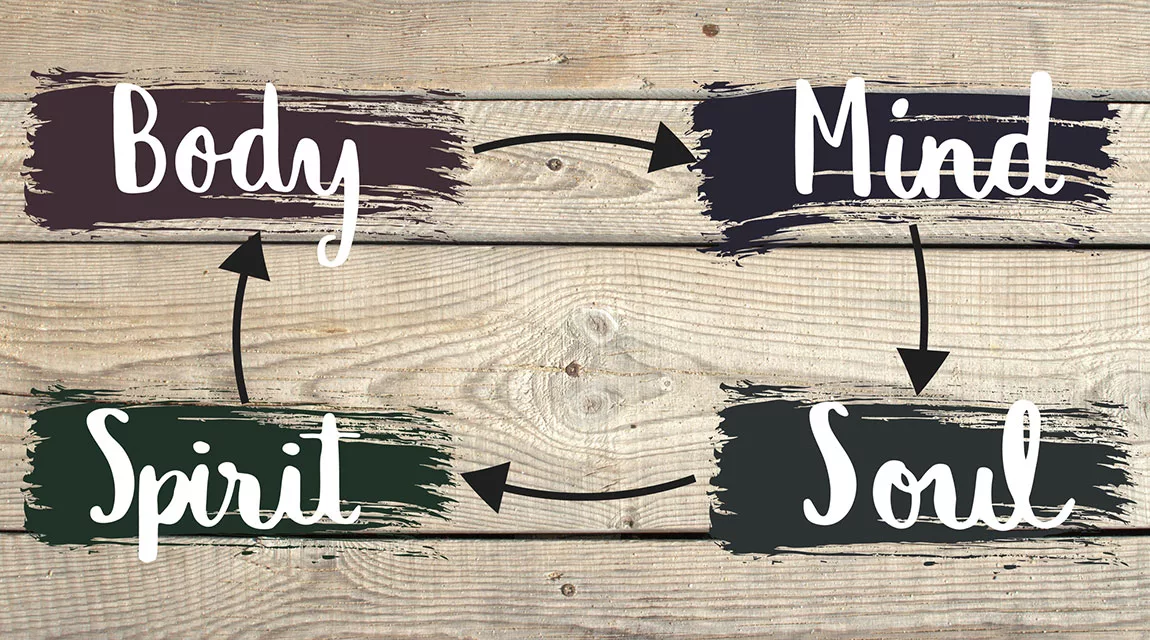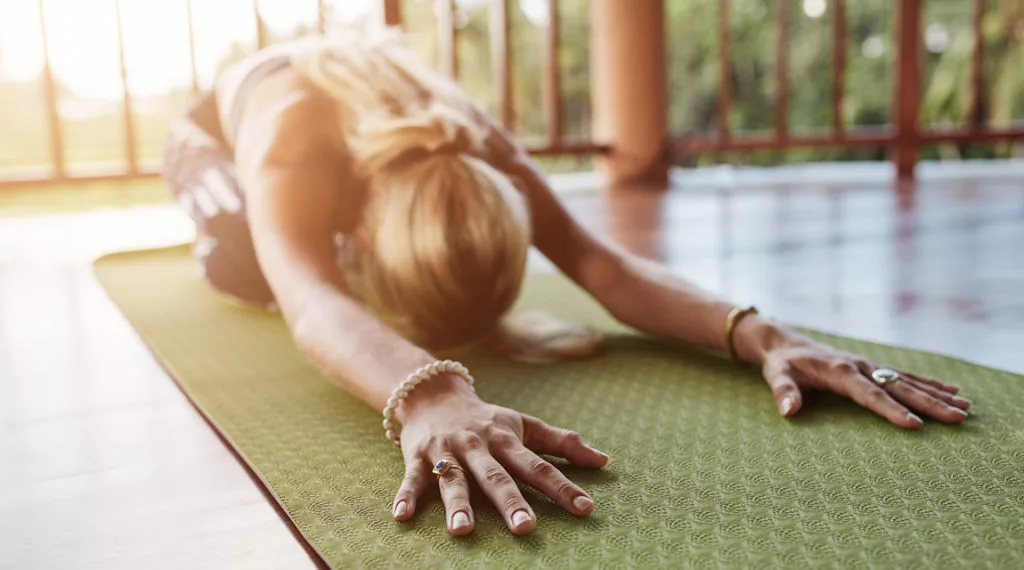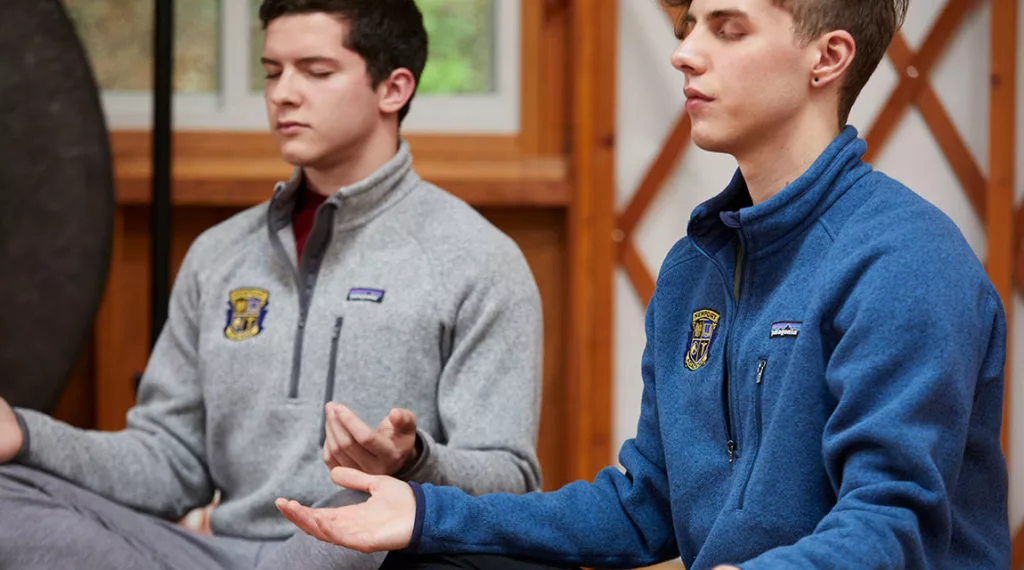Today’s teens need mental health treatment that goes beyond talk therapy. A holistic approach addresses wellness on every level. That includes body, mind, and spirit. Teens flourish with a holistic approach to care. In addition, an integrated approach treats the underlying causes of self-destructive behaviors. This is ideal, rather than just treating the symptoms.
The practice of holistic medicine integrates conventional and experiential therapies. This prevents and treats disease. In addition, it also promotes optimal health. Holistic medicine practitioners and holistic therapists believe in wholeness. The whole person is made up of interdependent parts. If one part is not working properly, all parts are affected. This understanding informs holistic patient care.
When it comes to teen mental health, holistic treatment addresses the whole person. Therefore, this is more comprehensive. A traditional approach addresses a single element of symptoms or behaviors. Consequently, a teen’s physical, emotional, and spiritual needs are equally important.

A holistic approach to teen mental health considers each teen’s:
- Gender
- Personal history
- Psychological development
- Relationships with family and peers
- Emotional self-regulation
- Sense of connection with self
- Cultural and ethnic factors
- Physical and behavioral needs.
Moreover, holistic teen treatment is based on the belief that compassion is key. Unconditional love and support is necessary for healing.

Holistic Therapy for Teens
Experiential modalities give teens ways to process. Additionally, they can address trauma and pain. This is done through doing, feeling, and relating, not just through thinking and talking. Such therapies are powerful for adolescents. They impact the teen brain and nervous system. These areas are still growing and changing.
Holistic healing takes place through martial arts, expressive arts, yoga and meditation, adventure therapy, and equine therapy. In addition, gardening, horticulture, or cooking supports holistic wellness.
These approaches can effect great change. They require teens interact with their environment and others. Within a safe, therapeutic setting, old habits and behaviors come to light. Furthermore, they are resolved. Hence, new healthy patterns are formed.
Studies show proven holistic methods for decreasing teen anxiety and depression can be equally or more effective than prescription medication. Also, drugs have side effects. Some side effects can be quite dangerous. These include the risk of addiction, depression, and even death when too much or the wrong medication is taken.

Healing Through the Body
Holistic practitioners believe that intense emotions and traumatic experiences reside in the tissues and nervous system. Thus, it’s only through body-based interventions that they can be fully released. Such healing transforms at a level deeper level.
“Body awareness is a necessary aspect of effective emotion regulation. Learning to notice, tolerate, and manage somatic experience may substantially promote emotion regulation.”
—Bessel A. van der Kolk, clinical psychiatrist and author of The Body Keeps the Score
Yoga is a powerful body-based approach. In addition, it is evidence-based. Furthermore, research proves that yoga practice strengthens the vagus nerve. The vagus nerve is critical to optimal physiological functioning. It is also a significant marker of resilience.
The practice of yoga is a non-pharmaceutical, evidence-based approach. It helps teens physically, emotionally, and spiritually. It also provides lifelong tools for self-regulation. Here are some of the ways that yoga creates holistic healing for teens.
Fosters self-observation
Yoga gives adolescents tools to change their habitual responses. They learn to compassionately observe themselves. Subsequently, they bring that self-compassion to their daily lives.
Develops the brain
Additionally, yoga develops the parts of the brain that regulates impulse control. It impacts how we react to stress and emotions. This is significant for teens, whose brains are still developing.
Promotes the mind-body connection
The practice of synchronizing breath and movement leads to awareness of one’s internal state. Thus, this translates into an ability to listen. Also, it allows awareness to respond to the messages the body sends to the mind.
Provides tools for stress relief
Numerous qualitative studies validate the power of yoga to calm the nervous system with teenagers. Teens use conscious breathing to relax before tests. Furthermore, they use it to calm down when they’re angry. In addition, it helps them sleep. These interventions impact teens’ ability to decrease the stress response overall. Therefore this is key because every mental health condition has stress as a component.
“What I found in yoga and meditation was what I was looking for in drugs and alcohol. I discovered a feeling of belonging to a greater purpose, a sense of community, and relief from the focus on the self. Yoga and meditation offer a way to let go of pressure and expectations by learning to be in the present moment.”
—Jamison Monroe, Newport Academy Founder and CEO

Movement Changes Mood
Exercise and physical activity contribute to holistic wellness. Scientists explore the link between exercise and mood and have done so for more than 100 years. And the majority of studies show that exercise improves mental health. The endorphins released by exercise:
- Improve natural immunity
- Reduce the perception of pain
- Enhance mood.
In one study, 30 minutes of exercise three times per week is as effective as drug therapy for depression. Exercise can also prevent relapse. In a study of three groups, only 8 percent of patients in the exercise group experienced a relapse of depression. Moreover, 38 percent of the drug-only group and 31 percent of the exercise-plus-drug group relapsed.
In a study at Penn State, students who were more physically active reported experiencing higher levels of enthusiasm. When teens exercise outdoors, they benefit from time in nature.

Meditation as a Tool for Holistic Healing
More than 600 studies on meditation show that it reduces stress. It also reduces symptoms of anxiety and depression. Meditation calms the sympathetic nervous system. This is the primal “fight, flight, or freeze” stress response, which catalyzes risk-taking behaviors. In addition, it buffers the prefrontal cortex. This part of the brain regulates emotions. A review study at Johns Hopkins found that meditation is equally effective in treating symptoms of anxiety and depression as antidepressants.
Meditation has also been proven to:
- Reduce “wandering mind,” which is associated with unhappiness
- Increase empathy
- Decrease ADHD symptoms
- Improve concentration and attention.
Groundbreaking research at Harvard Medical School shows that meditation enhances areas of the brain. The areas impacted are associated with well-being, self-regulation, and learning. Additionally, meditation decreases the volume of the amygdala. This region is responsible for fear, anxiety, and stress.
Furthermore, meditation helps one recover from addiction. Research on this topic includes a study in which mindfulness practice proved to help people stop smoking cigarettes. It was more effective than the American Lung Association’s Freedom from Smoking program.
Meditation works on the physiological and psychological levels. Thus, as the brain and biological markers change, the capacity for resilience and self-understanding expands. Hence, practices that increase self-awareness provide holistic tools. These tools assist in overcoming depression, anxiety, and/or substance use.
There is also a spiritual aspect to meditation. It creates feelings of connection with self and others. Therefore, practitioners often say that meditation “opens our hearts.”

Outdoor Adventure Therapy
Research on outdoor Adventure Therapy for teens reveals it increases well-being, self-awareness, and social connectedness.
First of all, Adventure Therapy gets kids into the beauty of nature. In addition, they learn life skills and build confidence. Furthermore, they gain resilience. This is a powerful tool in exciting and challenging situations.
Adventure Therapy might include:
- Cross-country skiing
- Ropes courses
- Rock climbing
- Paddle boarding
- Canoeing
- Kayaking
- Hiking
Moreover, Adventure Therapy teaches teamwork and empathy. Also, teens learn to cooperate and find solutions. Therefore, this is very positive for teen mental health.
With Adventure Therapy, kids get to soak in the fresh air. Unplugged time in nature helps regulate mood disturbance and nervous system arousal. This helps balance the time spent in front of screens. Studies also show that nature activities reduce the symptoms of ADHD.

Nutrition and Mental Health
Teen nutrition is an essential part of a holistic approach to treatment. An increasing number of scientific studies find a direct link between diet and mental health. Moreover, this is particularly true for children and teens. This is because their brains and bodies are still developing. Hence, nutrition is critical at this stage of life.
Researchers in Australia performed a randomized controlled trial to test whether improving diet quality can treat clinical depression. The study is known as the SMILES Trial (Supporting the Modification of Lifestyle in Lowered Emotional States).
The study involved 67 men and women with moderate to severe depression. They were divided into two groups for the three-month intervention. One group ate a healthy Mediterranean diet with more whole grains, fruits, vegetables, and lean protein. The other group ate their usual unhealthy diets while attending social support groups, which have been proven to help with depression.
After three months, researchers measured the participants’ depressive symptoms. A third of those in the dietary support group met the criteria for remission of major depression. However, only 8 percent of those in the social support group met those criteria. Clearly, nutrition has a powerful impact on mental health.

Holistic Wellness and Self-Expression
Creative arts therapies are effective for teens. Making art, playing music, or writing are all creative arts therapies. They address teen mental health and go beyond words. Instead, they offer ways for teens to express themselves, process feelings, and learn more about who they are underneath their symptoms.
Furthermore, they go beyond the rational mind. In addition, they tap into our most authentic self. According to researcher Shirley Riley, “Adolescents, in particular, are attracted to making symbols and graphic depictions. Therefore, they are more attracted to using art as language than to verbal questioning.”
In conclusion, holistic treatment for teens uses varied therapeutic modalities. Each teen is unique. Hence, one approach might be more effective than another. Therefore, when teens find what works for them, they begin to change. This allows teenagers to heal on every level. Consequently, that is the key to sustainable, long-term recovery.

Sources
Contemp School Psychol (2015) 19: 184.
Prim Care Companion J Clin Psychiatry. 2004; 6(3): 104–111.
Psychosomatic Medicine: September/October 2000 62(5): 633-638.
ACSMs Health Fit J. 2012 July/August; 16(4): 14–21.
Neuroreport. 2005 Nov 28; 16(17): 1893–1897.
JAMA Intern Med. 2014;174(3):357-368.
Drug Alcohol Depend. 2011 Dec 1;119(1-2):72-80.
American Journal of Public Health (AJPH), September 2004.
BMC Medicine 2017 15:(23).






